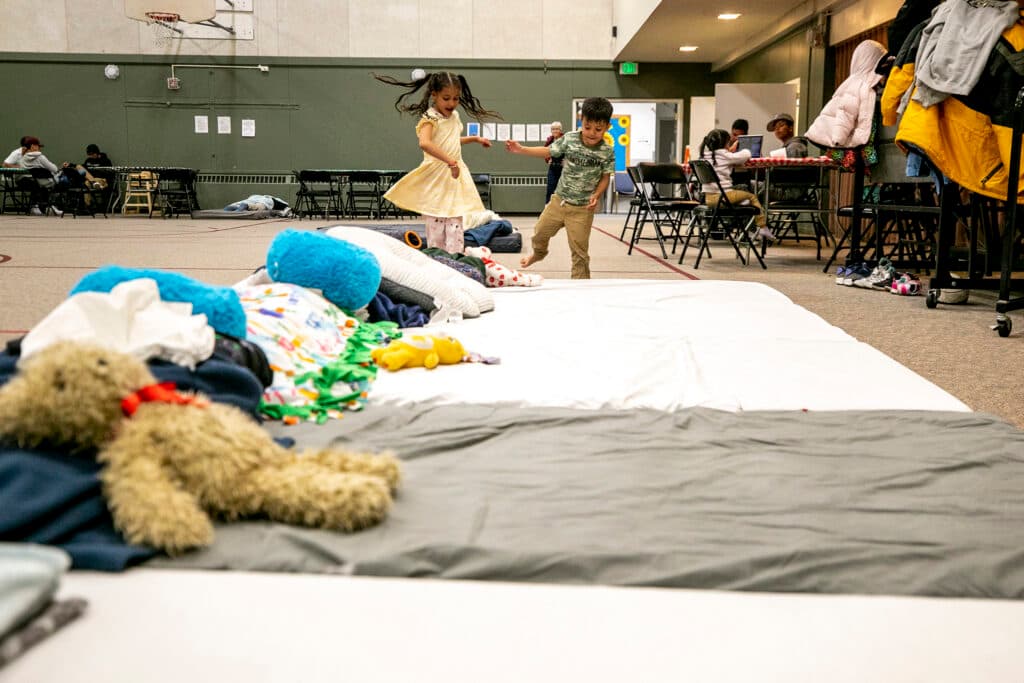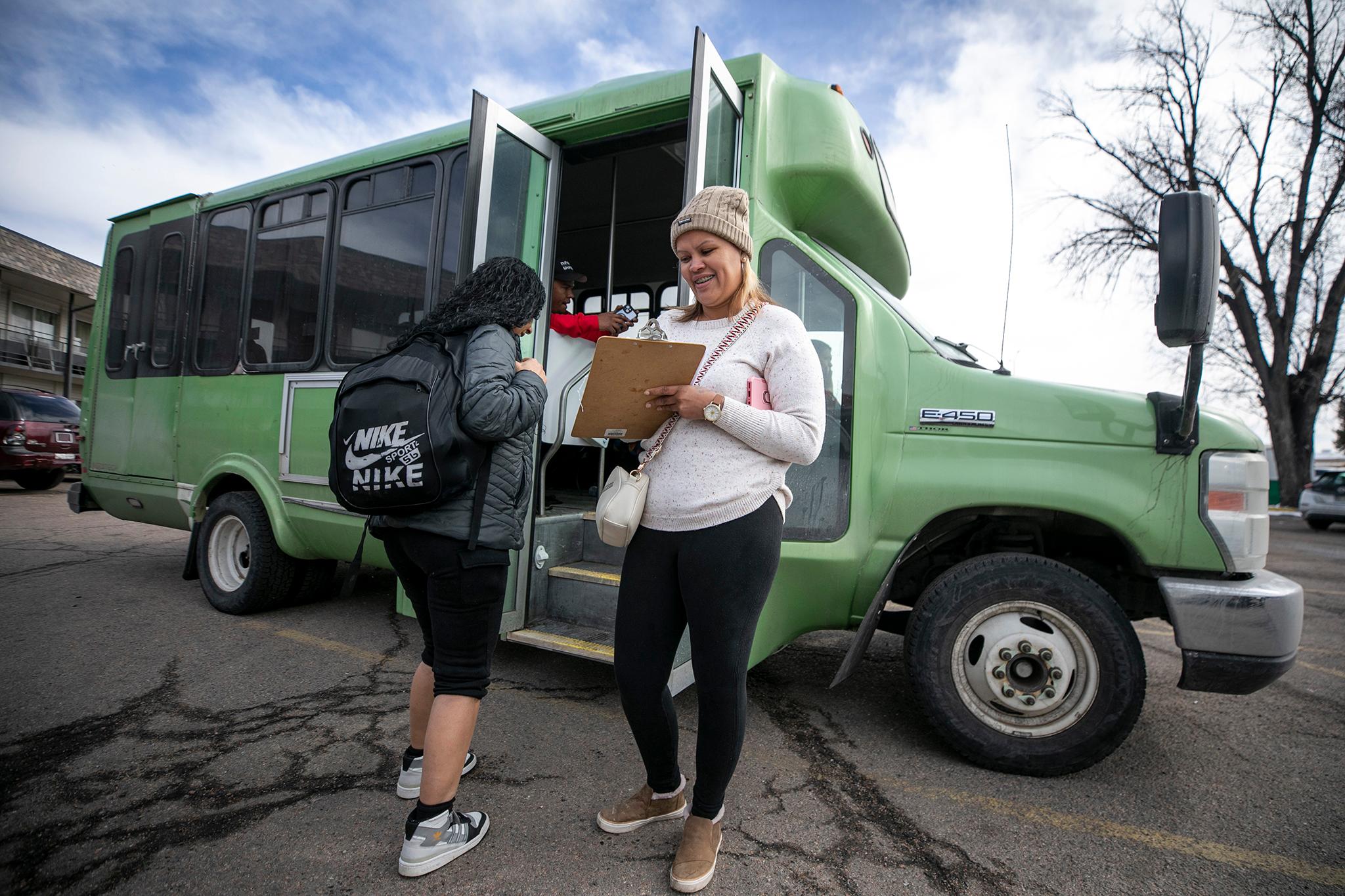Denver will purchase two buildings belonging to the Denver Community Church to support city efforts in temporarily sheltering new immigrants.
Denver City Council approved the $4 million purchase of 375 and 333 S. Zuni St. on Monday night.
The properties were purchased through a portion of the newcomer budget, which allocated about $9.5 million toward capital investments.
This isn't the first time the city and Denver Community Church (DCC) have worked together
The city began using the gymnasium at the church in late 2022 as a congregate shelter when new immigrants first started arriving.
Since then, the city has used the space on and off for newcomer families.
About 50 people are currently staying at the gymnasium shelter. The majority of them are from a new immigrant encampment that was recently swept, said Jon Ewing, a spokesperson for Denver Human Services.
DCC had initially purchased the space to expand their own operations, but as construction costs began to increase, they decided to place the property for sale.
It was perfect timing for the city to purchase it, said Lisa Lumley, the city’s director of real estate during a previous committee meeting.

The purchase doesn't mean the city is going back to long-term sheltering
With the city’s shifting response from emergency long-term sheltering to the Asylum Seeker Program, which focuses on finding stable housing and job training, any newcomer who has arrived in Denver since April 10 has only been offered short-term shelter. That typically expires after 72 hours.
The city sent representatives to El Paso in late April to convey this message and avoid families arriving in Denver expecting long-term shelter.
However, families will still come to Denver, whether they know the new policy or not. That's because, among other reasons, that’s what they're already being offered in Texas, Ewing said.

To stop families from ending up on the streets, Ewing said, they will go to DCC.
Ewing said the facility will also be used for new immigrants who have become homeless since arriving in the city, whether because they were evicted or because they never went into the shelter system.
While the shelter will be fundamentally short-term, some families will be offered 30-day stays. Those offers will be determined on a case-by-case basis and will primarily be for families who are unhoused.
“It’s our Swiss Army knife,” Ewing said. “We can use it when we have homeless families. We can use it when we just need short-term shelter for two or three days. We can use it when it's freezing cold outside and we know that people need a little extra time. It can be our multipurpose tool.”
There’s also long-term plans for the facility once the need to shelter newcomers is no longer as large a need.
During a Finance & Governance Committee, Lumley said the facility’s future plans would be in the hands of neighbors, especially once the Southwest Area Plan is completed.
Area plans are guidelines for how Denverites would like to see their neighborhoods grow in the future, including parameters for zoning and usage.
Currently, the building could be transformed into housing up to three stories. Lumley said once the plan is completed and shelter is no longer needed, the community can decide how they’d like the building to be used.
For now, Ewing said, it will house newcomers, and during colder months, it may be used for the unhoused population as well.













